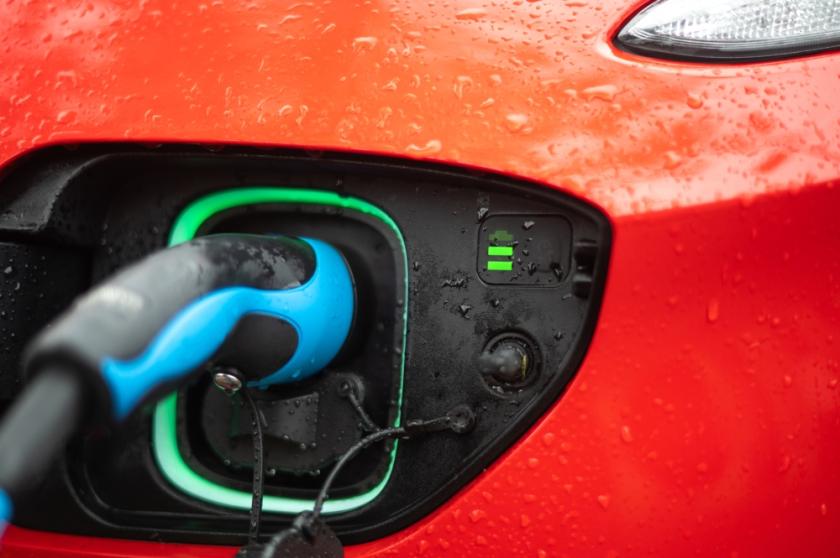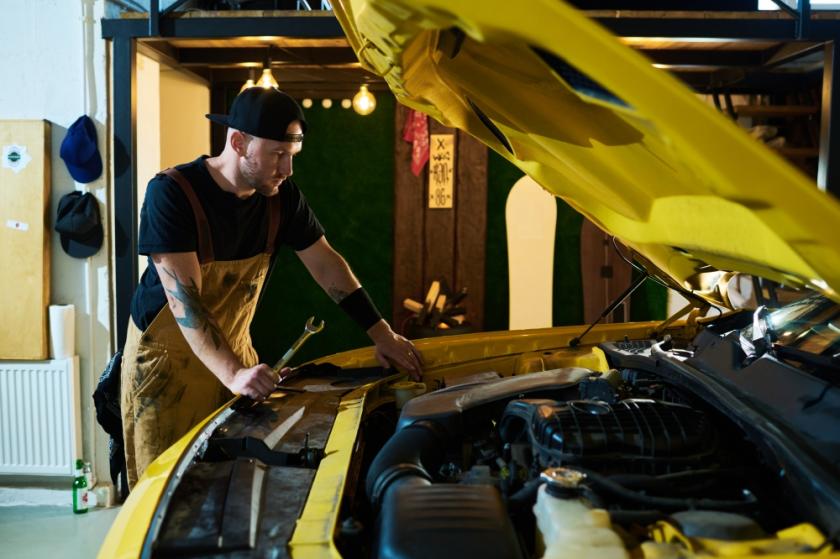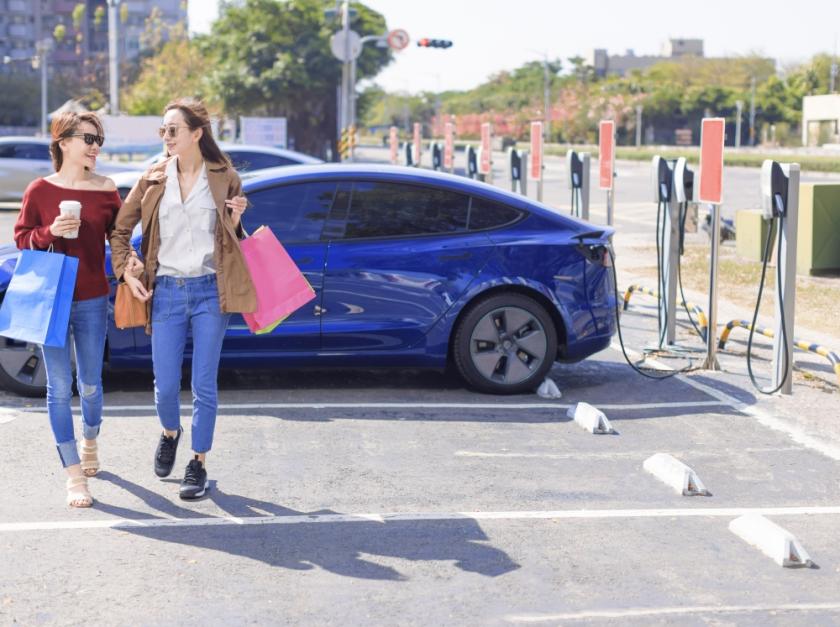The Top 10 Biggest Electric Car Myths Explained

Electric cars have become increasingly popular in recent years, and it is becoming more apparent every year that electric vehicles are the future of motoring.
Yet as electric vehicles are slightly different to what we are used to when it comes to how traditional cars work, there are a few misconceptions and myths about electric cars that may be playing on your mind. From questions such as how long does an electric car battery last or what the electric car battery recycling options are. For many people, electric cars are still a huge question mark.
So, we have put together everything you need to know about electric cars and the most common myths surrounding the electric car battery life, how long they last and the general electric car battery replacement cost. Read on to find the facts behind the myths!
Myth 1: Your EV can’t charge in the rain
This is by far one of the biggest EV misconceptions; to be fair, it makes sense. When you consider that electricity and water don’t mix, it would be natural to assume that using a high-voltage cable to charge your electric car when it’s raining is not going to end well.
However, luckily for electric car owners, this isn’t the case, and the charging plug and the car’s electrical socket have been designed to ensure that no water and dirt can get in. Charging up at a charging station? Well, don’t worry, as they’ve also been extensively waterproofed!

Myth 2: EVs don’t have enough range
While some myths have less impact than others when it comes to swaying someone’s decision on whether or not to buy an electric car, the myth that electric vehicles don’t have enough range is probably one of the most damaging. One of the most commonly asked questions about EVs is how long does an electric car battery last?
To give you some context, it is important to know that the average person in the UK drives an average of 20 miles a day, 142 miles a week and 617 miles a month.
Considering this, even electric vehicles with the shortest range can travel more than twice that distance, including the most affordable EVs. For example, the Nissan Leaf has an average of 150 miles per charge. Of course, there are some more expensive options, including the Tesla Model 3 with an impressive range of 310 miles, if you want an EV with a better electric car battery. Range anxiety is a feeling that EV drivers know too well, however, we explain why electric range may not always be important.
Myth 3: EVs are slow
Another EV myth that frequently goes around is that electric cars are amongst some of the slowest cars on the road. But, generally, electric vehicles are quicker than their petrol/diesel-powered counterparts. This is because its electric motor instantly generates off of its available torque, meaning that speed is almost instantaneous when the accelerator pedal is pushed down.
A great example of this is the Tesla Model S and the ‘ludicrous mode’. This is one of the quickest-producing cars available on the market and can do 0-60mph in an impressive 2.5 seconds. Now that doesn’t sound slow at all, does it?
Myth 4: EVs are too expensive to buy, maintain and repair
When you are looking for a new car, there are many different things that you need to consider. Aside from the cost of a new car and how much it will cost to run, you also need to consider maintenance and repair costs. General misconceptions about EVs state that as they are packed with some of the most cutting-edge technologies, such as the electric car battery, they are complex to service and fix if any issues arise.
However, when you compare an EV to a diesel or petrol engine with thousands of different-sized moving parts, an EV has an overage of only 20 parts. An electric vehicle has only a single reduction gear transmission, whereas a modern automatic gearbox can have anything up to 10 ratios. Therefore, there are a lot fewer things that could go wrong in an EV. Being cheaper to maintain is one of the many actual benefits of going electric.
This means you can consider electric cars more reliable and kinder on the wallet. With an EV, you don’t have to worry about maintenance tasks such as changing oil and cambelts. While you may be worried about the electric car battery replacement cost, it is essential to remember that this differs on the EV manufacturer. But by leasing an EV with Rivervale instead, you take away the worries of maintenance and repairs!

Myth 5: EVs are no ‘greener’ than petrol or diesel cars
Another common misconception about vehicles with an electric car battery is that they aren’t any kinder to the environment than conventional engine cars. However, there is no denying that they are the much greener option. This is because electric cars emit fewer greenhouse gases. While EVs have received some criticism that they aren’t being fueled by electricity created by renewable energy sources, it is still a more environmentally friendly option.
In the UK today, nearly 40% of electricity is generated from renewable sources, so even when you consider the electric generation of an EV, emissions are still an impressive 17-30% lower than a petrol or diesel engine. Of course, as the UK and the rest of the world generate more renewable energy, the more environmentally friendly EVs will be.
Myth 6: EV batteries can’t be recycled
Similarly to concerns over how environmentally friendly electric vehicles are is a misconception around electric car battery recycling options. Questions have been asked surrounding what happens at the end of the electric car battery life.
Most electric vehicles have warranty requirements for a minimum electric car battery life. This is usually at least eight years or around 100,000 miles. However, manufacturers such as Tesla and Leaf are already recording electric car battery life stats nearly double that.
But what happens at the end of an electric car battery’s life? Well, just like most batteries in conventional cars, they can be recycled. The electric car battery recycling process involves using EV power cells to store wind and solar energy. So you don’t have to worry about landfill myths.
Myth 7: EVs aren’t practical
When electric vehicles started becoming popular, there were significant concerns about them being practical when charging points were in short supply. Therefore, this was a common myth that many drivers believed were a negative aspect of owning an EV.
As of September 2022, there were over 20,000 charging locations across the UK, meaning you can charge while on the go. But it is also important to remember that most electric vehicle charging is done at home, so while you can find charging ports at garages and supermarket car parks, you can charge overnight at home too. It is also worth remembering that most electric cars now have outstanding ranges! Here are the top 10 longest-range electric cars.
Myth 8: Unless you can afford a Tesla, there is no point in buying an EV
For many years Tesla was the pioneer of electric vehicles. They were one of the first manufacturers to put an electric car on the road that could be used for day-to-day use. However, they usually come at a price. This has led to the myth that unless you can afford to pay out big money for a Tesla, there is no point in driving an EV.
However, most major car manufacturers have impressive EV offerings, from family cars to SUVs and electric vans. Therefore, you no longer have to focus all your interests (and your money) on Tesla, with so many options to choose from now. Are you worried about the cost of owning your own EV altogether? Lease one from Rivervale today!
Myth 9: Charging an EV takes too long
Interested in driving an EV but worried about being left with an empty electric car battery that takes too long to charge? While plugging your EV into a domestic power supply could leave you waiting a long time when you have somewhere to be, you can make the most out of fast charging points while out and about.
With rapid charging points at supermarkets and garages all around the country, you can quickly charge your EV while doing your weekly shopping! For example, models from manufacturers such as Audi, Genesis and Kia can reach up to 60-80% charge in around 20 minutes!

Myth 10: EV batteries cost more than the car to replace
While, as we addressed earlier, not many EV batteries that will need replacing, for those that do, they will likely be done under warranty. Electric car battery prices are falling rapidly, so even if it sounds like a lot of money today, they will be a lot cheaper if you find that you need to replace them in 8-10 years from now.
Interested to find out more about electric cars and how you could be driving away in one today? Get in touch with the experts at Rivervale Leasing.





